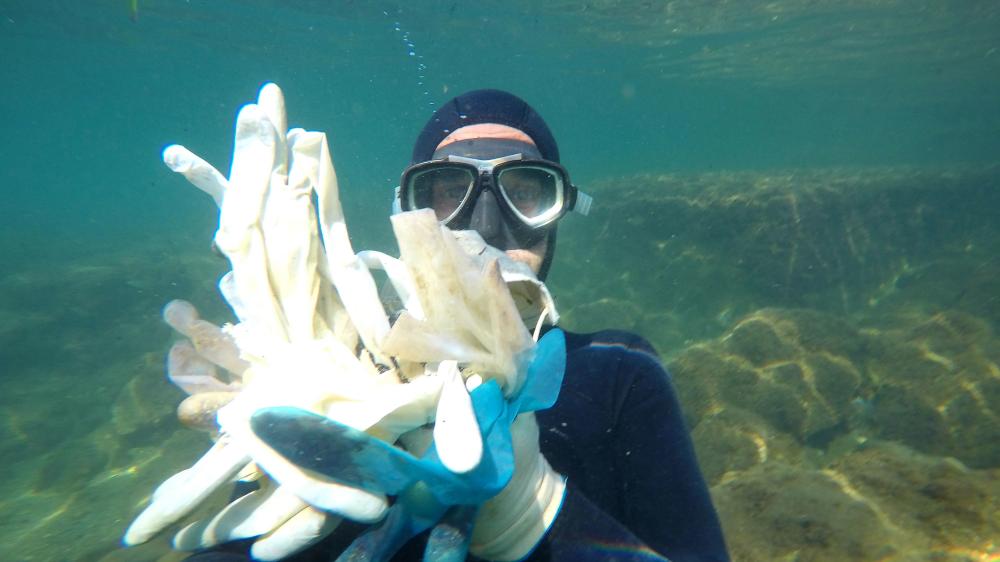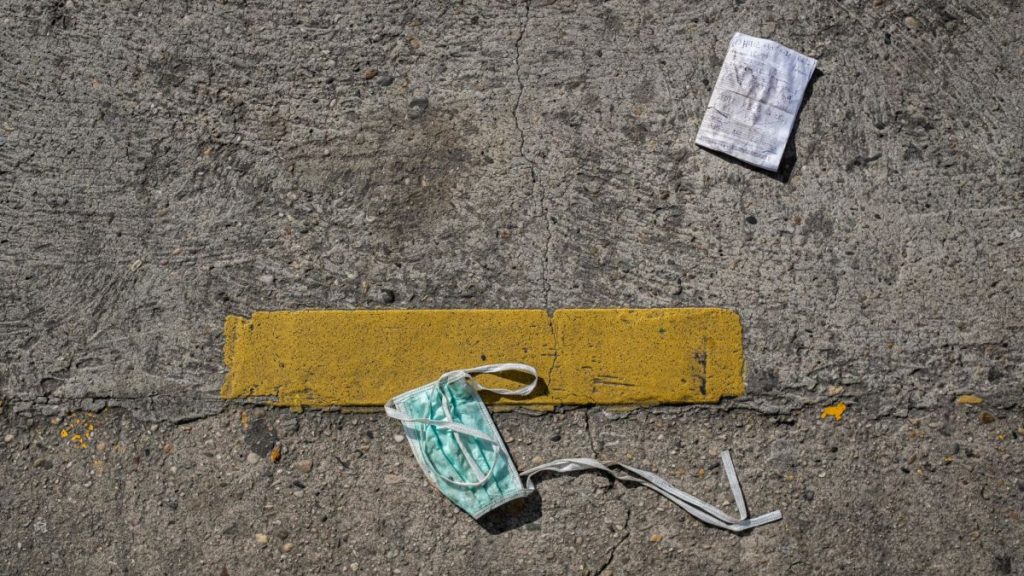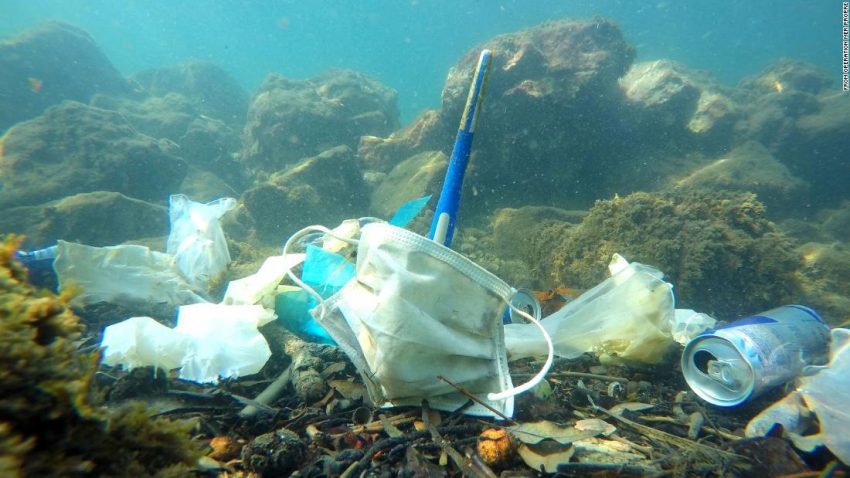With the Coronavirus putting the world to a standstill, there has been a consequent decrease of pollution in no matter what form. It was encouraging for environmentalists to see this change and also that people were becoming more conscious about their habitat, but alas, it was not going to last forever as the lockdown ended in some countries and people were free again. Though the imposed condition of having a mask in public persisted, some people adhered to it and some refused to obey. Nevertheless, the use of masks became essential for the survival of humans and a bane for the environment. According to a report by USA Today, by the end of the year there might be more masks than jellyfish in the sea as all the Coronavirus waster are being thrown into the ocean and landfills. Environmental organizations are raising the alarm about the growing ocean pollution caused by the increased waste created out of these used masks and gloves.

In June, some conservationists warned that the Coronavirus pandemic would spark an increase in the ocean pollution, and it is not the end of July that the situation is getting worst. It is believed that more than millions of items of masks and gloves were being thrown away every single day, and that too in healthcare settings. It is not surprising to see waterlogged masks, gloves, masks, hand sanitizer bottles, and other Coronavirus waste are found our seabed and daily washed up onto our beaches, adding up to the day-to-day detritus increase.
With some 8 million tons of plastics entering the ocean every year, adding to the estimated 150 million tons already circulating in marine environments. It is feared that with the daily use of masks and gloves this number will keep increasing until next year. As expected, the appeal of environmentalists has not fell on deaf ears but rather on conscious governments from all over the world. With environmental organizations always on the foot to combat climate change, it is hopeful to have a solution to decrease this daily use of one-use masks and gloves. Some governments are working alongside these NGOs to make the environment cleaner and greener.
According to the International Union for Conservation of Nature, the used masks and gloves will make up to 80 per cent of all the marine debris. The bright colors of latex gloves can be mistaken for food by seabirds, turtles and other marine mammals that puts them in severe risk of having injuries, thus causing their deaths.
The early warning sign of this situation came in February, when the conservation group of OceanAsia posted a picture of dozens of surgical masks on the Hong Kong beaches. There is no better no worse to what is coming in the future and we need to be more responsible when it comes to saving the environment.
Along with the environment, there is also a risk of a spread of the coronavirus with the number of masks thrown in the open. In Spain, France, the UK and US, people are being cautioned about littering and even fined for non-resect of the environment.

With hope of maintaining a decent environmental care, we urge you to be conscious when it comes to using masks and gloves for your own protection. The use of masks and gloves should be more focused on washable masks and having a conscious hand hygiene. According to environmentalists, used masks must be destroyed or disposed properly. Wash them in an antiseptic liquid, and then put them in a bag; keeping it ideally for 72 hours and then dump it along with the other garbage. Researchers and scientists are working together towards finding an innovative solution for proper disposal of masks and gloves across the globe, especially for places like hospitals, nursing centers, police stations and restaurants, where masks are being used more frequently.

